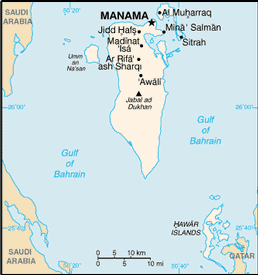US-supported and equipped Bahraini security forces have fired tear gas at crowds of people in an attempt to disperse protesters chanting anti-government slogans country’s oil hub of Sitra on Wednesday night, injuring at least seven more people.
 Protests and clashes with security forces have become an almost daily event in Bahrain, where taxpayer money has been sent to prop up the Sunni minority-led dictatorship and suppress the Shiite majority who have been demanding greater rights since demonstrations began in February.
Protests and clashes with security forces have become an almost daily event in Bahrain, where taxpayer money has been sent to prop up the Sunni minority-led dictatorship and suppress the Shiite majority who have been demanding greater rights since demonstrations began in February.
A 14 year old boy was killed when he was shot in the head at close range with one of these tear canisters at the end of last month, an example of the mounting body count the government has racked up in response to the protests, declining in rate from their initial highs when security forces opened fire on peaceful demonstrators and began to enforce martial law.
The Obama administration’s support for the Bahraini dictatorship remains assertive, with over $92 million in aid since Obama’s inauguration and another $26.2 million slated for next year. The Pentagon has also cut deals with Bahrain in arms trade, sending dozens of American tanks, armored personnel carriers, helicopter gunships, thousands of .38 caliber pistols and millions of rounds of ammunition, from .50 caliber rounds used in sniper rifles and machine guns to bullets for handguns, some of which were undoubtedly used against protesters.
Of primary interest to US national security planners in Bahrain is the maintenance of the Navy’s Fifth Fleet, which oversees the flow of oil, and also to prevent a slide towards Iran if the majority Shiites gain their rights. Bahrain remains a thorn in the Obama administration’s side, as it’s hard to account for being on the side of the repressive dictatorship when the propaganda on Libya has contradicted that long-held stance.


